[gallery id=1531]
Robin Luscombe, the founder of Luscombe Motors, is in no doubt of the potential damage that over-ambition could do to his down-to-earth Suzuki franchise. The business has been setting standards and winning awards almost since the day he acquired it from Robert Bowett, in an area known as ‘the workshop of Leeds’, in 2010.
Luscombe has presided over a culture where staff are trusted to make deals with their customers and do not chase amber and red aftersales work to boost profits – the “sales push” is frowned upon. Both practices appear to have played their part in delivering standard-setting customer retention and return-on-sales figures.
[gallery id=1531]
"We try to do everything the big groups and PLCs can’t. In many ways, we are like an independent, with a flexibility and adaptability that makes it much easier for us to meet the expectations of our customers.”
Robin Luscombe, the founder of Luscombe Motors, is in no doubt of the potential damage that over-ambition could do to his down-to-earth Suzuki franchise. The business has been setting standards and winning awards almost since the day he acquired it from Robert Bowett, in an area known as ‘the workshop of Leeds’, in 2010.
Luscombe has presided over a culture where staff are trusted to make deals with their customers and do not chase amber and red aftersales work to boost profits – the “sales push” is frowned upon. Both practices appear to have played their part in delivering standard-setting customer retention and return-on-sales figures.
When AM paid a visit to his facilities on Low Road, Hunslet, Luscombe said: “When I walked in the door here in 2010, the dealership was exactly what you would expect. It had all the trappings of a franchised dealership.
“I remember taking the team aside and explaining the culture I wanted to see. We were going to be doing things ‘old-school’ – low pressure – and giving customers a good deal. Playing the long game.
“The general consensus was that I’d be bankrupt within six months, I think, but now we are a business that is proud of its customer retention levels, proud of its reviews and referrals and everyone’s a part of its success. Now everyone gets it.”
Despite what may sound like a philanthropic approach to business, Luscombe’s model has proved itself at returning a profit.
Annual financial results for the year to May 31, 2017, show a turnover of £26.3 million, up more than 5% on 2016’s £25m million, with profit before tax up by 24.5%, from £808,753 to £1,006,619.
Gross profit as a percentage of turnover was 14%, while administrative expenses were 10.4% of turnover (2016: 9.8%), producing an overall return-on-sale before interest and tax of 3.9%, an improvement on 2016’s 3.4%.
 However, Luscombe said the business did face challenges last summer.
However, Luscombe said the business did face challenges last summer.
Sales “fell off a cliff” in Q2, only to defy the wider market trend by recovering to 2016 levels by October and finishing the year strongly to record 1,827 new car sales and 1,065 used car sales for the year.
Despite the stronger year-end, Luscombe announced at a staff meeting in January that a twice-yearly profit-sharing scheme – every member of staff receives the same sum – would be cut by more than half on the same period 12 months earlier.
In the seven months to January, Luscombe said the business had maintained a return-on-sales figure of 3.5%, but turnover was down 9.9% year-on-year, partially due to the reduction in Mitsubishi fleet success previously generated by the Outlander PHEV.
Starting a private franchised dealer invesment fund
Luscombe recently became a founding member of a multi-million-pound private investment fund created to help entrepreneurs establish their own franchised car dealerships.
Tempus Automotive Investments was formed with industry experts David Kendrick, Dave Vickers, Paul Daly and Steve Mills after the group identified the limited number of sponsored dealer opportunities currently available and the funding challenges faced by new entrants to the sector.
UHY Hacker Young research has shown that 92% of new entrepreneurs in motor retail over the past 15 years have been through manufacturer-sponsored dealer programmes, suggesting the need for fresh blood.
Interested parties go through a thorough assessment programme before being given formal funding approval by the investor team. Businesses generating a turnover of up to £50m, but with shareholders or owners that have no succession plan in place, are among the likely acquisition targets.
The fund launched in August 2017 and Luscombe said interest has been strong, but that the volatile market meant the consortium has exercised caution about potential investments.
“Things haven’t moved on considerably for the simple reason that nobody seems certain of the direction of travel of the industry,” he said.
“We want to deliver value for people that want to set out on their own, and will have committed probably in the region of £150,000 of their own money to do so.
“A business being offered to us now could well turn out to be worth a lot less by the time April comes. It’s a difficult period, but it might also present opportunities.”
Luscombe started his own business with no manufacturer backing.
After beginning his automotive career as a parts apprentice at a coachbuilding workshop in Leeds, a love of motorcycles landed him a position in the parts department of Colin Appleyard’s Keighley Suzuki “bike shop”.
It was only when the suggestion of a move over to cars would free up Saturdays to spend more time in the saddle that he made the move to four wheels.
Over the years Luscombe has proved an adept sidecar trials rider, securing 16 British titles, 18 Manx Sidecar, plus three World successes and one Australian sidecar trials championship.
While winning on the motorcycle, Luscombe progressed his career, running two Appleyard sites. Eventually, he felt the time came to go it alone.
He said: “I woke up one day in January 2009 and said ‘right, I’m 47 at the end of this month, if I leave it another week I’m going to be too old’.”
With the approval of his wife, and against the advice of some friends, Luscombe left his job at Colin Appleyard.
“It was very much a case of putting everything on red and hoping for the best,” he said.
“I’d done the business for someone else and needed to know if I could do it for myself.”
Going it alone
The opportunity to buy Bowetts Suzuki came about after Luscombe put in a speculative call to then owner Robert Bowett.
The business was everything he had hoped for, having been at the top of his list of potential targets.
“It was a Suzuki franchise, within a short commute of my home and it was in a good territory.
“It was 16 months from our initial chat to finalising the deal,” said Luscombe.
In the summer of 2016, Luscombe secured the freehold of the Suzuki site, along with Bowkett’s neighbouring Mitsubishi franchise and used car pitch for an undisclosed sum.
Luscombe said he has no plans to expand further: “I’ve created a business which makes good money and has a very distinct culture.
“Our customers are like our family. If I was to grow the business, I’m in no doubt that I’d lose that.”
While Luscombe is very much the man at the helm of his business – he presents promotional videos posted on the business’ website, voices radio adverts and writes a weekly ‘Robin’s Diary’ section for The Yorkshire Post – he is keen to imbue his staff with independence.
Last July, he took a month away from the business to allow his team the chance to make their own decisions, to influence the performance of their departments and lessen their reliance on him.
“I asked for a daily operating control document and how many cars had been sold and that was it,” he said.
“They benefited from the knowledge that I trusted them and was happy for them to make their own decisions.”
Part of the Luscombe culture is an effort to adopt a team ethos. While he was unable to measure the effects of his month off on the business, he said the recovery of the business after a tough April, May and June could be attributed to allowing his team “to grow”.
The bonus scheme – which sees all 50 Luscombe Motors staff receive the same cash lump sum twice a year – helps the team spirit.
All eight of his managers were involved in the decision to introduce the scheme and it includes everyone from sales managers to showroom cleaners.
Staff retention levels are high, reaching 95% in 2016 and 92.5% in 2017.
As a sign of its staff satisfaction levels, Luscombe Motors achieved AM Best Dealerships to Work For status, which was presented at Automotive Management Live 2017 in November.
The sales team brings together the concept of trust in staff with Luscombe’s focus on delivering a personal customer service.
He likes to see his sales manager on the shop floor, communicating with customers, and his nine sales executives are part of an end-to-end customer service model.
“Customers don’t want to be moved from one person to the next during the course of their visit, so our sales staff will deal with a sale from end to end,” he said.
“They can value the part-exchange up to their comfort level.
“The sales exec’s main job is that of a rapport-builder, but it’s hard to fill that brief if they’re just one part of a long process. We want staff to get to know their customers and welcome them back each time they come in.”
Luscombe Motors won the AM Award for Excellence in Customer Service at the start of February, gaining praise for its sales mantra: “We won’t sell you a car, we’ll help you buy one.”
Luscombe insists that customers are allowed to go away and think about a deal if they wish as part of the business’ low-pressure sales ethos.
Ending the servicing ‘hard sell’
The same approach extends to aftersales, where Luscombe dropped prices when he acquired the operation in 2010. Service reception no longer attempts to push amber and red work after a customer has made clear they do not want the work carried out.
“When I came here, the workshop was suffering – they had charged the customers more money in an effort to compensate,” said Luscombe.
“I said ‘we’re lowering prices and we’ll get more business and sell more cars’. They thought I was mad.”
When AM visited Hunslet, the workshops were bustling and Luscombe reported that his latest financial results showed overhead absorption of 110%, up from 103% a year earlier.
He said aftersales profitability was up by 5%, with trade parts sales up by 17%, a figure which should see it exceed £200,000 for the financial year.
Service retention in the Suzuki franchise stood well above the manufacturer’s upper quartile of retailers, at 97.13% in year one, 94.6% in year two and 72.6% in year three.
The ongoing battle to keep aftersales costs low continues to be a headache, however, with customers increasingly expecting a full valet worth about £50 when spending just £100 on a first service, Luscombe said.
But he insists that a busy workshop serves to feed the car sales business, with customers encouraged to pop into the showroom for a coffee.
Attracting new customers through referrals and as a result of positive online feedback is also a key target at Luscombe Motors.
In 2010, Luscombe had little cash to invest in marketing and “just sat down at a computer and messed around”.
The result was a strong social media presence at a time when other retailers may have been focusing on more traditional marketing channels.
Luscombe remains active on Twitter and LinkedIn, extending the use of CitNow video for aftersales customers into YouTube clips, which he presents from the showroom, and customer testimonials, which take centre-stage on a website developed by Yorkshire-based Autoweb Design. Luscombe won the AM Award for Best Use of Video in 2017.
Reviews on Google and Auto Trader also help drive custom to the business.
“It’s remarkable the number of referrals we attract. It’s a huge part of our business,” said Luscombe.
“For us, it’s fairly simple. We treat people in the best way we can and if something goes wrong we deal with it.”
‘Treat every customer like George Clooney or Angelina Jolie’
 Luscombe Motors hired high-profile keynote speaker Geoff Ramm to help staff come up with a way to deliver a “celebrity service” to its customers at the dealer’s annual staff meeting in January.
Luscombe Motors hired high-profile keynote speaker Geoff Ramm to help staff come up with a way to deliver a “celebrity service” to its customers at the dealer’s annual staff meeting in January.
Ramm – who regularly works with brands such as Emirates and Specsavers – delivered a lively presentation centred on the need for staff to treat every customer no differently to how they would treat George Clooney or Angelina Jolie.
Teams from across the business took part in a two-minute exercise to come up with an idea for how to deliver a unique ice cream product for a parlour business. The exercise was intended to show participants that generating game-changing ideas need not be time-consuming.
Volunteers dreamt up a “make your own ice cream” concept, flavoured cones and a high-quality, dine-in experience in a matter of seconds.
Ramm said: “Is there anything like that available in Leeds now? No, there isn’t. If you can come up with innovations like that for a business you don’t know at all, what can you do for Luscombe customers?”
Ramm, formerly a marketing manager with Springfield Motor Group, also highlighted that compliments, personalised service and gestures such as low-cost, personalised gifts not only strike a chord with customers, but can gain marketing traction via social media channels.
At the end of the presentation, Luscombe said Ramm’s fee would be worth it if everyone in the room was inspired to make another £100-a-month on the back of it.
Luscombe said afterwards: “I think that was money well spent.”
‘Robin control’
Used cars account for a small part of Luscombe’s business, with the sales ratio skewed heavily towards new vehicles, even though exchange rates pushed up the price of imported stock by 10%-15% in 2017.
Despite hosting Takanori Suzuki, Suzuki’s head of European automobiles and Nobuo Suyama, Suzuki GB’s managing director, when they visited the UK on an “EV fact-finding mission” in December, Luscombe said it was the manufacturer’s range of straightforward, petrol-engined vehicles that had paid dividends for the group as anti-diesel sentiment took hold of the market through 2017.
Luscombe said Suzuki plans to invest in EVs to meet strict regulations that will be brought into force in India – its key market, with 1.25m annual sales – but feared such developments could drive up prices still further.
The business has made efforts to speed up the processing of used stock and improve the quality of online classifieds. A salesman looking for more regular working hours and less commission-based pay made the switch to become a full-time vehicle photographer and classified advert producer, uploading about 50 images of each used car and writing thorough descriptions of their features five days a week.
Luscombe said: “It might have once taken 10 minutes to post a classified ad, but now they need to be spot on and it can take over an hour. Doing things right saves time towards the end of the process. Creating a classified advert has become very much a part of the sales process.”
The used forecourt at Luscombe’s Hunslet site will accommodate up to 100 cars, but Luscombe said capacity is rarely reached as the used stock is sold too quickly. The forecourt usually features about 70 vehicles, and about 88 used vehicles are sold each month.
Used vehicle stock is generally up to five years of age and 60,000 miles and is bought from about 10 different sources.
Luscombe said an over-reliance on manufacturer stocking sources can disadvantage retailers, serving as a “leveller” on price, resulting in franchisees competing for the same business.
For a similar reason, he set aside Auto Trader’s iControl system.
“I prefer to employ ‘Robin Control’,” said Luscombe.
Login to continue reading
Or register with AM-online to keep up to date with the latest UK automotive retail industry news and insight.

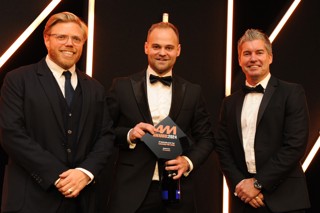

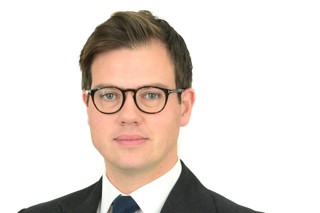
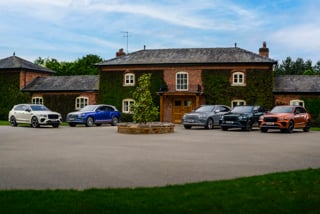



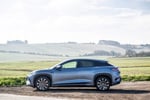
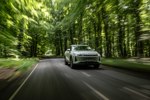
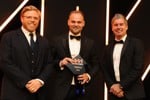








Login to comment
Comments
No comments have been made yet.